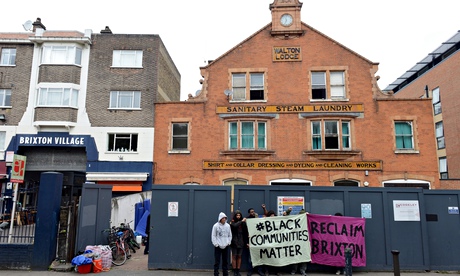
They say hindsight is a wonderful thing, but that rather presupposes that the insight that it gives you is beneficial. If all it reveals is how you missed out by the narrowest of margins, then it’s just a drag, isn’t it? I occasionally drive past the area of east London where my aunt had a four-storey house. She got old and the house was a bit run-down. It seemed that the best option was to sell it. Who knew then that within just a few years, money would flow in to the vicinity. Bankers, monied types who work in the City, love big houses and don’t want a vile commute, turned up and tuned in. The Windrush generation, who bought those houses in the 1960s and 70s by scrimping and saving, sold up to them and moved out. Then the artist cavalcade stopped by. An area for so long seen as urban and edgy became desirable and trendy, and increasingly expensive. Such is gentrification.
I thought about the process the other day when I learned that some of the undesirable streets close to where I grew up are now being marketed by the estate agents as a “village”. Estate agents: they have hindsight and foresight. If they say it is a village, soon it could be.
This diversity/gentrification debate flares at this time every year as the floats and parades and revellers arrive in Notting Hill for the carnival. Notting Hill, once a tremendously deprived area – home to a poor white working class and cash-poor black arrivees – has seen seismic change. The Notting Hill set, as they are known – think Cameron, Gove, Osborne – run the country.
Thus, every year, the carnival hits the streets, as it has for almost half a century. Every year, relative newcomers who hate the carnival hit the road to spend bank-holiday weekend elsewhere. A few moan to the papers.
According to the Times, Michelle de Swarte, a model turned TV presenter, amused the Edinburgh festival last week with her personal experience of gentrification. She grew up on an estate in Brixton. “I was desperate to leave. Now I realise I don’t have the money to move back,” she said. Learn from my mistake was her message to minority inhabitants of places urban and edgy. “Don’t move. Wait until the white people come and want brunch.”







